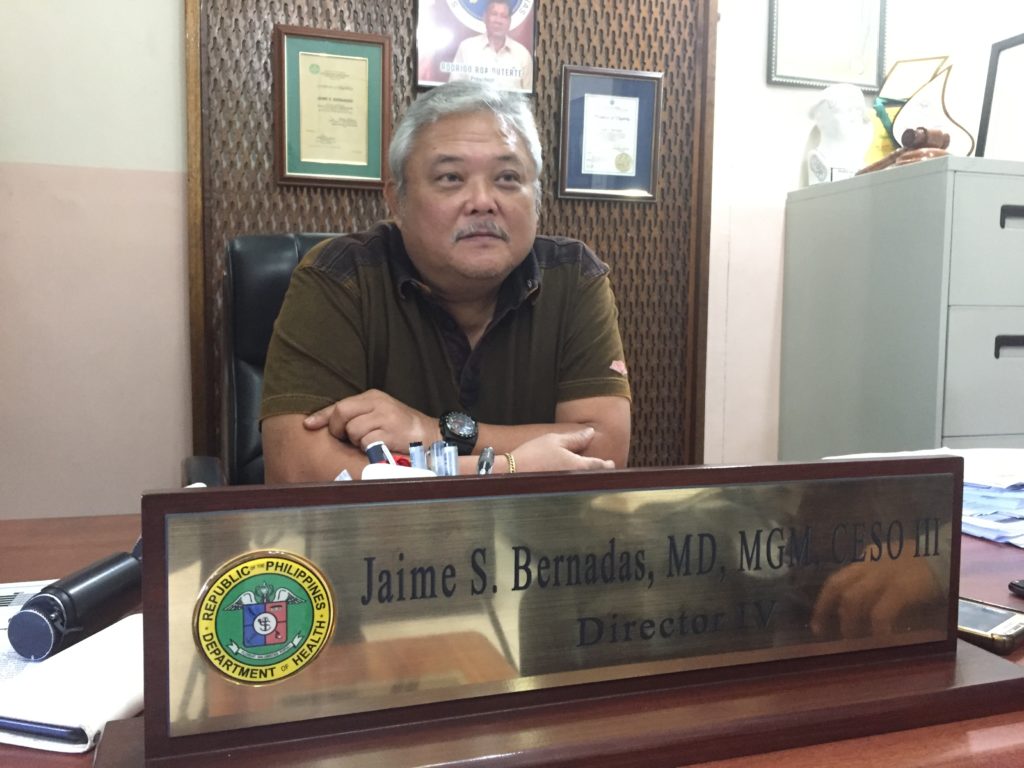
Dr. Jaime Bernadas, the director of the Department of Health in Central Visayas (DOH-7), urged the public to get vaccinated for measles to stop the outbreak. | Photo by Delta Dyrecka Letigio
CEBU CITY, Philippines—The Department of Health in Central Visayas (DOH-7) confirmed there is a measles outbreak in Cenral Visayas, which has claimed the life of three infants at the height of the outbreak from late 2018 to January 2019.
Dr. Jaime Bernadas, the director of DOH-7. said that measles should have been eradicated in early 2000s but it has resurfaced because of the decline in vaccination.
“Vaccination does not only protect an individual. It protects a community,” he added.
Two infants in Cebu City and one in Negros Oriental, all of whom were less than a year old, were recorded to have died due to measles that have risen from less than 10 cases in January 2018 to 96 cases in January 2019.
“The infants were malnourished and they died because of bronchopneumonia, which is a complication brought by measles,” said Dr. Jaime Bernadas, the director of DOH-7.
Bernadas said that infants are the most vulnerable to measles as their immune systems are underdeveloped to fight such disease.
According to DOH-7 records, the rise in the measles cases began around the middle of 2018, starting in Negros Oriental where a province-wide outbreak was declared on the same year.
The number of cases further increased as the outbreak spread to Metro Cebu, the rest of Cebu province and Bohol, reaching a total of 469 cases for 2018.
On Thursday, February 7, the DOH national office in Manila declared a measles outbreak in the National Capital Region, Eastern Visayas, Central Visayas, Ilocos region, Cagayan Valley, Central Luzon, Calabarzon, Mimaropa and Bicol Region.
Bernadas said the trend has been due to the decreased number of vaccinations among children in the past five years since 2014.
He said that the lack of enough vaccinated members of the community especially among children creates a potential gap in the herd immunity that allows the virus to spread easily.
Bernadas explained that a vaccinated person helps protect those who are yet to be affected by measles because even if he comes in contact with one who is sick with measles, he cannot be infected or be a transmitter of the disease.
For this reason, DOH-7 highly recommends the vaccination of children from five months old to 15 years old with the measles, mumps, rubeola (MMR) vaccine.
The vaccines are free in all health centers in the country and can also be availed in private clinics.
“Let us not risk our children’s health. Let us all get vaccinated,” said Bernadas. /elb